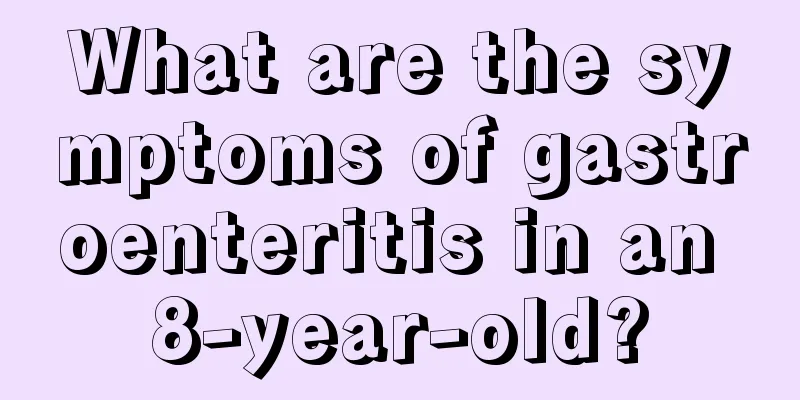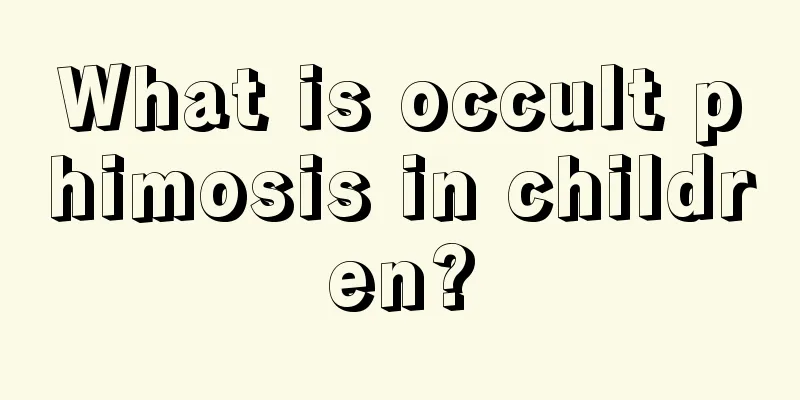What are the symptoms of gastroenteritis in an 8-year-old?

|
Gastroenteritis is not unfamiliar to young people, because basically everyone has some tendency to this disease. If you don't eat much for a long time, or only eat once in a while, you are basically sure to suffer from gastroenteritis. Moreover, this type of disease is gradually becoming younger and younger, and even some children of a few years old may suffer from this disease. So what are the symptoms of gastroenteritis in an 8-year-old? Clinical manifestations The type and severity of gastroenteritis symptoms depend on the type and amount of the microorganism or toxin. The most common symptom is diarrhea. Other symptoms include: abdominal pain, nausea, vomiting, fever, loss of appetite, weight loss (which may be a sign of dehydration), heavy sweating, cold and clammy skin, muscle pain or joint stiffness, fecal incontinence, etc. Severe vomiting and diarrhea can quickly lead to dehydration, the symptoms of which include weakness, extreme thirst, oliguria or darker urine, dry skin, dry mouth, sunken eyes, and infants may cry with fewer tears. Severe vomiting or diarrhea can cause hyponatremia, hypokalemia, hypotension, etc. Patients who drink large amounts of water with little or no salt to replenish their fluids are particularly susceptible to hyponatremia. Fluid and electrolyte imbalances are potentially dangerous, particularly in seriously ill, debilitated, very young, or elderly patients; severe cases may result in shock and renal failure. treat Treatment of gastroenteritis should include fasting and correction of water and electrolyte imbalance. Usually, patients only need to rest in bed and drink plenty of fluids (such as oral rehydration salts). Even patients who are vomiting should drink as much fluid as possible. Breastfeeding infants should continue to breastfeed. If vomiting or diarrhea persists or if dehydration is severe, intravenous rehydration may be necessary. Antiemetics may be used when vomiting is severe. If diarrhea persists for more than 24 to 48 hours and there is no evidence of a more serious bacterial infection, antidiarrheal drugs may be added. Antiemetics and antidiarrheal drugs are generally not recommended for children. Because antibiotics may cause diarrhea or promote the growth of drug-resistant bacteria, they are usually not recommended even if the pathogen of gastroenteritis has been identified. However, antibiotics can be used for infections caused by certain pathogens (such as Campylobacter, Shigella, Vibrio cholerae, etc.) or for patients with traveler's diarrhea. Antibiotics are not effective for gastroenteritis caused by viral infections. Gastroenteritis caused by parasitic infections requires the use of antiparasitic drugs. |
<<: Can the common cold be contagious to babies?
>>: What happened to the gas egg?
Recommend
What causes no fetal heart rate?
There are various abnormalities in the fetal hear...
Can a baby dye his hair while breastfeeding?
Women should avoid dyeing their hair when they ar...
One-year-old baby has a lot of eye mucus
Eye mucus is a natural secretion of the eyes, and...
What should parents do if their children are depressed?
In today's society, many people have become &...
Five kinds of meat that make your children smarter!
Five kinds of meat that make children smarter the...
What are the white spots on the baby's face?
The small white spots on the baby's face are ...
How to make porridge for six-month-old baby
With the development of society, more and more wo...
Why does my baby’s hair sweat while sleeping?
Sweating is a physiological manifestation and a s...
How to train your baby to roll over
Children can be said to be the center of a family...
The causes of blue lips in children and dietary supplements
Children's healthy lips are generally pink an...
What should I do if my newborn baby does not have a bowel movement for several days?
There are many newborns who do not have a bowel m...
What should I do if my child sprains his neck?
A sprained neck is not only very painful, but als...
Melanoma in children
Melanocytic nevus in children is not a serious co...
Symptoms of Yin deficiency and hyperactivity of fire in children
If a child suffers from yin deficiency and excess...
Newborns sometimes have crossed eyes
If parents find that their newborn's eyes are...









